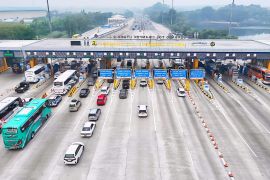Jakarta (Antara Bali)- The Indonesian government will create an integrated database to synergize data on poverty handling sourced from various ministries.
"So, while informing the public about a program, there would no longer be any overlapping or invalid (data)," Coordinating Minister for Human Development and Culture Puan Maharani stated here, Thursday, after attending a plenary meeting on poverty reduction efforts chaired by Vice President Jusuf M. Kalla.
An agreement was reached during the meeting to create a pool of data concerning social protection and economy regarding food resilience, she noted.
With the presence of a consolidated database, the government plans to integrate its poverty reduction programs, such as the Hopeful Family Program (PKH), the Indonesian Health Card (KIS), and the Indonesian Smart Card (KIP), with the data available in the electronic identity (e-ID) cards.
"So, we want to integrate all data to develop a single database, and its usage can help to synergize the existing programs," he explained.
The meeting was attended by Coordinating Minister for Human Development and Cultural Affairs Puan Maharani, Social Affairs Minister Khofifah Indar Parawansa, Health Minister Nila F. Moeloek, Manpower Minister Hanif Dhakiri, Education and Culture Minister Anies Baswedan, Finance Minister Bambang Brodjonegoro, Coordinating Minister for Economic Affairs Darmin Nasution, National Development Planning Minister Sofyan Djalil, Religious Affairs Minister Lukman Hakim, and Villages, Disadvantaged Regions and Transmigration Minister Marwan Jafar, among others.
Bambang Widianto, executive secretary of the National Team for Acceleration of Poverty Reduction (TNP2K), which is headed by Kalla, said the latest data revealed that the poverty rate during the September 2014-September 2015 period had increased, thereby leading to a social gap in urban areas, in particular.
"Among factors that created the gap include accessibility to education and health services as well as basic infrastructure and uneven prosperity growth due to job quality differences," he explained.
Various programs carried out by the government to address poverty had been able to improve the welfare of the poor.
However, the hikes in the prices of basic commodities have significantly contributed to the decrease in the purchasing power of the poor, and as a result, the poverty rate had increased.
"Therefore, the efforts to reduce the poverty rate must be supported by concrete measures to control the prices of staple food commodities," he stated. (WDY)









